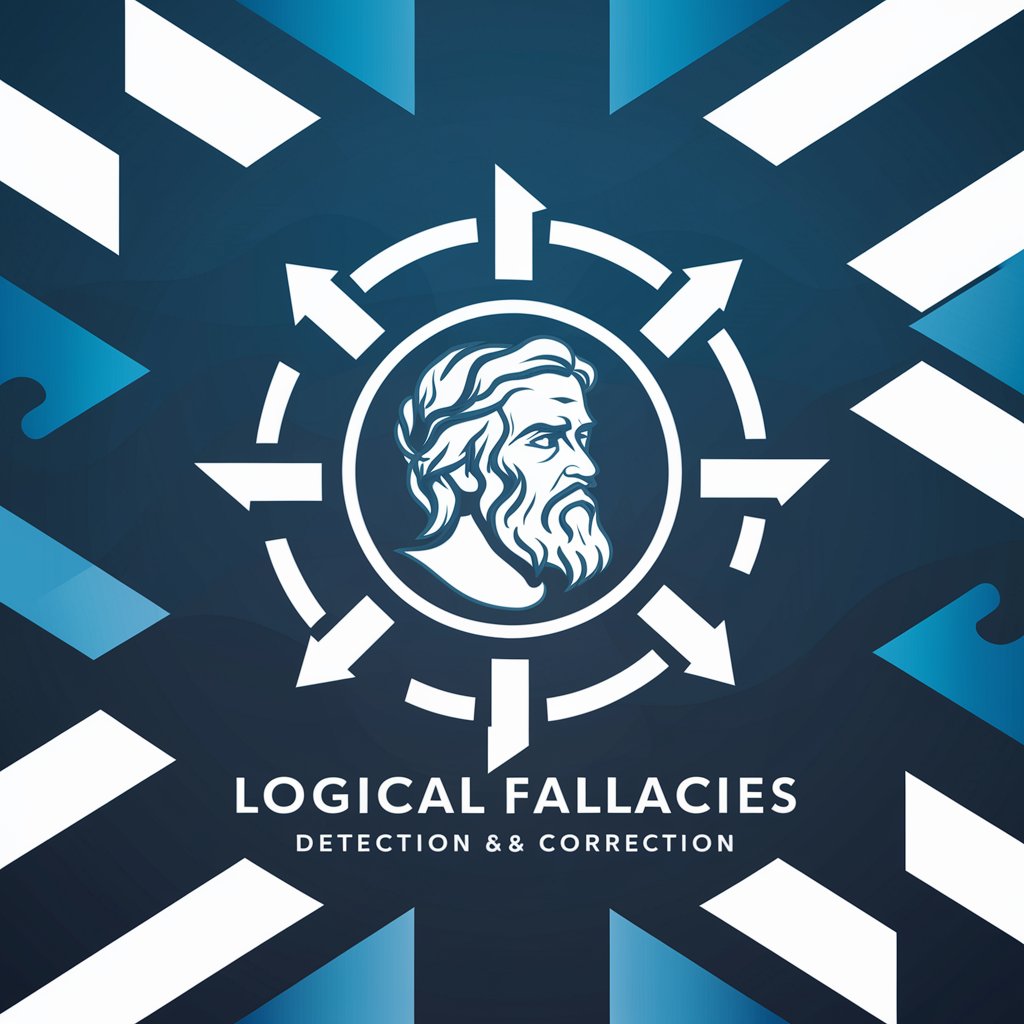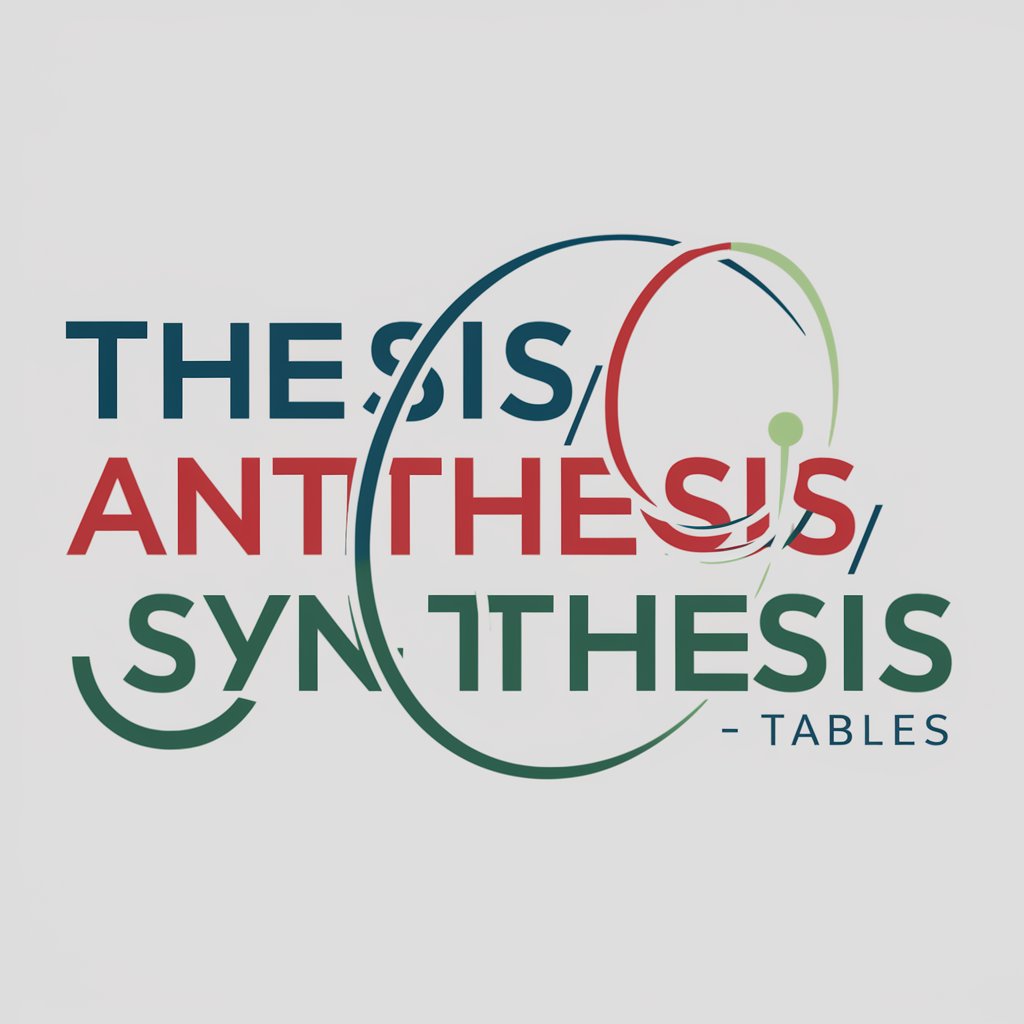72 GPTs for Philosophical Analysis Powered by AI for Free of 2025
AI GPTs for Philosophical Analysis are advanced digital tools designed to assist in exploring and understanding complex philosophical concepts and arguments. Leveraging Generative Pre-trained Transformers, these tools are adept at handling a wide range of tasks related to philosophical inquiry, from argument analysis to ethical deliberation. They offer customized solutions by adapting to the nuanced demands of philosophical discourse, making sophisticated topics more accessible to a broader audience.
Top 10 GPTs for Philosophical Analysis are: Marxist Mentor (马克思主义导师),Santo Tomás de Aquino,ExistentialGPT,Shiki,FallacyGPT,PlatoAI,Logical Reasoning 1,Auto Matt,Mentat Advisor,Value Pursuit GPT
Marxist Mentor (马克思主义导师)
Enlightening Minds with Marxist Wisdom

Santo Tomás de Aquino
AI-powered logic and metaphysical analysis

ExistentialGPT
Navigating Existential Depths with AI

Shiki
Empowering insights through AI.

FallacyGPT
Empowering Reason with AI Insight

PlatoAI
Unraveling the Depths of 'Republic'

Logical Reasoning 1
Precision in Logic, Clarity in Thought

Auto Matt
Empowering Research with AI Intelligence

Mentat Advisor
Empowering Decisions with AI-Powered Dune Wisdom

Value Pursuit GPT
Illuminate Values, Empower Decisions

Critical Thinker
Deep Insight, AI-Powered Critique

DebatePro
Sharpen Your Arguments with AI-Powered Analysis

Paul Häberlin
Empowering Thought through AI-Powered Philosophy

Kreativator
Deep Dive into Complex Ideas

Narrative Machine 139
Enlightening Conversations with AI Wisdom

Deep Dive: Logic of Philosophy
Deciphering Philosophy with AI

Nietzsche Collected Works
Unraveling Nietzsche's Thoughts, AI-Powered

bible guide
Unveiling Wisdom Across Cultures

Javed Ahmad Ghamidi
Explore Islamic Wisdom with AI-Powered Insights

Thesis/Antithesis/Synthesis - Tables
Synthesizing Ideas, Resolving Contradictions

Architectural Sage
Revolutionizing Architecture with AI-Powered Analysis

42master-Wittgenstein
Unlocking Language's Mysteries with AI

Ask Aquinas
Demystifying Aquinas with AI

Essential Attributes of Philosophical Analysis GPTs
These AI tools stand out for their ability to comprehend and generate philosophical content. Features include deep contextual understanding, argumentative reasoning, and the capacity to engage with abstract concepts. Specialized functions might encompass ethical dilemma resolution, historical philosophical context analysis, and simulation of philosophical debates. Enhanced by capabilities like natural language processing, these tools provide a rich, interactive environment for philosophical exploration.
Who Benefits from Philosophical GPTs?
The primary users of these AI tools include philosophy enthusiasts, academic researchers, educators, and students seeking a deeper understanding of philosophical theories and concepts. They cater to both novices, offering simplified explanations and guided learning paths, and experts, providing advanced analytical tools and customizable features for in-depth research and teaching.
Try Our other AI GPTs tools for Free
Argumentative Writing Improvement
Explore AI GPTs for Argumentative Writing Improvement – your key to mastering persuasive communication with advanced AI tools. Perfect for professionals, students, and anyone keen on enhancing their argumentative skills.
Public Speaking and Persuasion
Discover how AI GPTs revolutionize Public Speaking and Persuasion with tailored, user-friendly tools for impactful communication across diverse sectors.
Personal Tax Planning
Explore the future of personal tax planning with AI GPT tools. Leverage cutting-edge AI for tailored tax advice, seamless integration, and user-friendly experiences, suitable for all, from novices to professionals.
Business Tax Guidance
Explore AI GPTs for Business Tax Guidance – your advanced tool for navigating the complexities of business tax laws with ease. Tailored for professionals and novices alike, these AI solutions offer up-to-date tax advice, comprehensive data analysis, and seamless system integration.
Estate Planning Assistance
Revolutionize estate planning with AI GPTs: advanced tools offering tailored legal document drafting, insightful advice, and comprehensive legal understanding, all accessible to both novices and professionals.
Retirement Account Strategies
Explore AI GPTs for Retirement Account Strategies – your advanced tool for personalized, data-driven retirement planning. Leverage cutting-edge AI for tailored financial insights and strategies.
Broader Implications of Philosophical GPTs
Beyond direct applications in philosophical analysis, these GPTs offer insights into the intersection of technology and human thought. They demonstrate the potential of AI to engage with subjective and interpretative disciplines, fostering a multidisciplinary approach to knowledge. Their user-friendly interfaces and integration capabilities make them valuable tools in both educational settings and professional workflows.
Frequently Asked Questions
What exactly is AI GPT for Philosophical Analysis?
It is an AI tool designed to assist with the comprehension, discussion, and analysis of philosophical topics using advanced natural language processing and machine learning techniques.
Who can benefit from using these tools?
Anyone with an interest in philosophy, including students, educators, researchers, and hobbyists, can find these tools beneficial for their studies or personal exploration.
Do I need coding skills to use these GPTs?
No, these tools are designed to be user-friendly and accessible to those without programming expertise, though they also offer customization options for tech-savvy users.
Can these tools help with academic research?
Yes, they can assist in various aspects of academic research, from generating hypotheses to providing historical context and analyzing philosophical texts.
Are these tools capable of understanding complex philosophical arguments?
Yes, they are trained to process and generate responses to complex arguments, simulating a deep understanding of philosophical concepts.
Can I use these tools to learn about philosophy?
Absolutely, these tools can serve as an interactive guide for learning and understanding various philosophical theories and ideas.
Is it possible to customize the tool for specific philosophical topics?
Yes, many of these tools offer customization options, allowing users to tailor the AI's focus to specific areas of interest within philosophy.
How do these AI tools stay updated with new philosophical discussions?
They are regularly updated with new data and information, ensuring they remain relevant and can engage with contemporary philosophical debates.